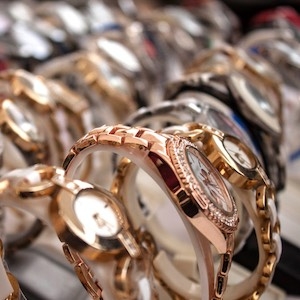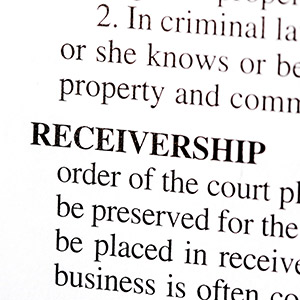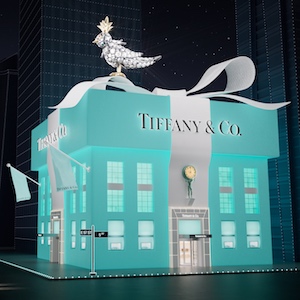
Jewelry industry groups have asked the Federal Trade Commission (FTC) to clarify, and in some cases ban, widely used marketing terms like sustainable, recycled gold, and carbon neutral, in response to what they see as rampant “greenwashing.”
The requests were made in response to an FTC call for input on its Green Guides, which cover environmental marketing claims and are being overhauled. The comments received by the FTC can be seen here.
The most in-depth submission came from the Jewelers Vigilance Committee, whose 21-page slate of recommendations was endorsed by the U.S. Jewelry Council (a consortium of industry groups), Ethical Metalsmiths, the Black in Jewelry Coalition, CIBJO, and 12 other groups. It can be seen here.
Among the groups’ recommendations:
– Ban the term sustainable.
“The words sustainable or the similar sustainability have been so used and misused they seem to have become meaningless to the consumer,” the JVC said. “Ironically, in some cases [they] have even evolved into red flags for problematic business behavior by savvy consumers, almost automatically evoking ‘greenwashing.’”
The organization asked the FTC to “strongly discourage” use of the word sustainable and “try and eliminate it from marketing.” It said responsible would be a better alternative—but asserted the term needed to have a “real definition.”
– Avoid recycled when it comes to precious metals and gems.
JVC argued that recycling shouldn’t apply in a jewelry context, since recycling has traditionally applied to items that would otherwise be thrown away, and jewelry materials are rarely discarded.
“Bench scraps are reused, melee diamonds are sent in for regrading, possible recutting, and resale, and even the carpets under jewelers’ benches catching metal scrap and dust are sent in for precious metal reclamation,” it said.
The FTC’s current definition of a recycled material would only qualify for gold found in “electronics waste,” JVC noted, and “this is a fraction of the material that is used in refining recycled precious metal.”
Recycled gold has been found to come from sketchy sources, it added.
“Ultimately, consumers want to make decisions about products that are the least harmful possible,” it concluded. “With the current recycled terminology, there is no legitimate way for them to make those choices in the jewelry industry.”
– Disallow claims that lab-grown diamonds are good for the environment.
Lab-grown “diamonds are being marketed as sustainable … and better for the environment. Neither claim has been proven to be true, and both are misleading to consumers,” according to the JVC document.
It said that some companies bill their lab-grown diamonds as mining-free “without acknowledging that the components and equipment necessary to produce their products often come from mined sources, and that the precious metal these products are set in is also mined.”
JVC also asked for “guidance on what mining specifically means to the environment and how to compliantly market products that are mined within the environmental space.”
– Require more information about carbon neutrality claims.
“Some carbon offsets may be totally worthless and, instead of addressing and reducing climate change, actively contribute to it,” said the JVC’s submission. “Carbon neutrality certifications based mostly on offsetting do not actively change what has already happened in a supply chain and do not certify whether a company is reducing its emissions.
“In addition, some carbon offset claims represent emissions reductions that will not occur for two years or longer. This is a claim that is too far removed from its action to be relevant to a consumer’s decision to make a purchase.”
JVC also called for greater enforcement of both the Green Guides and the FTC Jewelry Guides, noting the warning letters the FTC sent to eight jewelry companies in 2019 had an “immediate effect on the industry.”
Also submitting comments on the Green Guides to the FTC were the American Gem Trade Association (AGTA), the Cultured Pearl Association of America (CPAA), the blogger Recycled Gold Paradox, Wisconsin jeweler Hanna Cook-Wallace, and lab-grown diamond manufacturer Diamond Foundry.
The AGTA submission also said that recycled should not apply to precious metals or gemstones, and took aim at terms like carbon-free, mining-free, never-mined, and locally sourced. It differed from the JVC’s submission in saying the FTC should adopt the definition of sustainability proffered by the United Nations’ Brundtland Commission: “meeting the needs of the present without compromising the ability of future generations to meet their own needs.”
The Cultured Pearl Association asked for new guidance related to calling nonagricultural products organic, as in “organic gemstones.” It also called for a new definition of sustainability, asserting that pearls may be the “only inherently sustainable gem.”
“Recycled Gold Paradox” argued that the term recycled gold is “widely used to greenwash” and should only apply to gold recovered from electronics. Anything else, according to the submission, should be called reprocessed gold.
Cook-Wallace called for the continued use of the term organic gemstone to describe bone, horn, shell, coral, pearls of all types, and “any other substance used in jewelry that was produced by, or a part of, a recently living organism.” She said sustainable should not be used to described any jewelry product, but said recycled should be allowed to “describe the repurposing or restyling of used and inherited jewelry.”
Diamond Foundry agreed with industry groups that the term sustainable is a “general environmental benefit claim” with no “real industry-accepted definition or standards in place.” It asked the FTC for clearer guidelines on how companies should use it.
It also contended that man-made diamond producers should be allowed to use the term mining-free.
“Representatives of the mined diamond industry … note that high-purity methane is necessary to produce man-made diamonds, and methane is generally sourced from the mining of gas, oil, and coal,” the company wrote in its submission. “That position relies on an incorrect assumption that consumers would have a strained, unreasonable perception of mining-free, rather than the obvious impression that it means the diamonds were not mined.”
This story has been updated with Diamond Foundry’s submission.
(Photo courtesy of the Federal Trade Commission)
Follow JCK on Instagram: @jckmagazine
Follow JCK on Twitter: @jckmagazine
Follow JCK on Facebook: @jckmagazine





